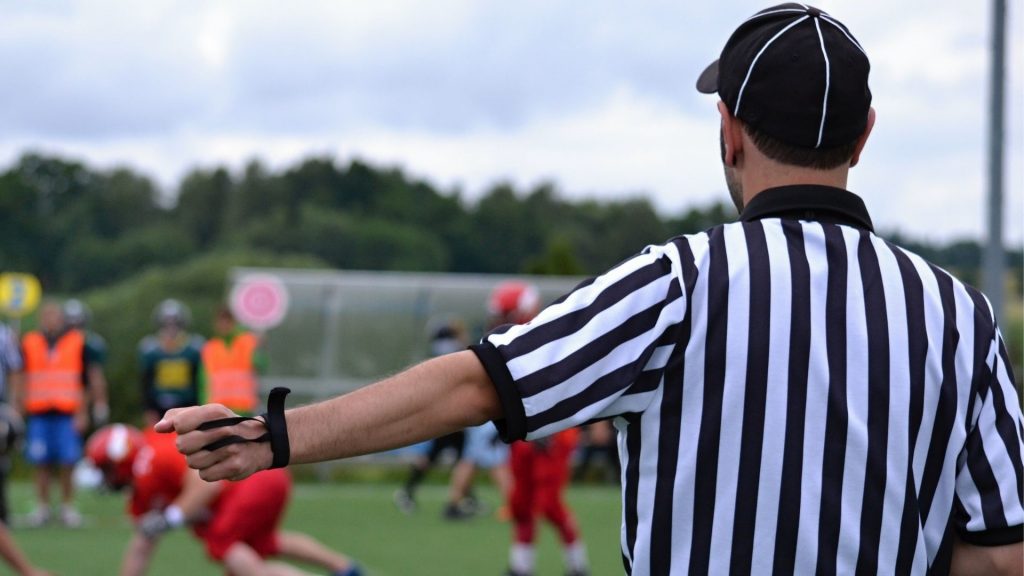Every football player dreams of one day catching the eye of a football scout. Whether you’re playing on a professional team, participating in local leagues, or just honing your skills on the training ground, it’s essential to understand what football scouts are looking for. These experts are the gateway to professional contracts, academy placements, and national recognition, and they often have very specific criteria when evaluating potential talent.
If you’re looking to break into professional football, understanding the skills football scouts look for is your first step toward success. In this article, we’ll take a deep dive into the key attributes that scouts focus on, the areas where players often get overlooked, and how you can fine-tune your abilities to meet these demands.
What Skills Do Football Scouts Look for?
Football scouts focus on a variety of skills that determine whether a player has what it takes to succeed at higher levels of the game. While different scouts may have slightly different priorities, certain abilities are universally recognised as critical for potential success in professional football. These attributes can be broadly divided into technical skills, physical traits, and mental characteristics.

Technical Skills: The Foundation of Football Talent
When it comes to football scouting, technical skills are often the first thing that scouts notice. These are the fundamental abilities that players need to possess to excel in the game. Without a solid technical foundation, players will struggle to make an impact at higher levels, no matter how physically gifted they may be.
1. Ball Control
Ball control is perhaps the most important technical skill for any football player. This encompasses a player’s ability to trap the ball, maintain possession, and make accurate passes under pressure. Football scouts look for players who can control the ball smoothly and efficiently, even in tight spaces. Whether it’s a simple first touch or intricate dribbling, a player’s ball control is often the first trait that scouts evaluate.
Pro Tip: If you want to impress a football scout with your ball control, practice receiving the ball from different angles and speeds. Try to maintain possession even when under pressure from an opponent.
2. Passing Accuracy
Passing is the heartbeat of football. Scouts are keen on players who can make precise, accurate passes over short and long distances. Whether it’s a simple 5-yard pass or a long diagonal ball, passing accuracy plays a pivotal role in a player’s ability to dictate the game.
Secret Tip: Scouts love players who can execute perfectly weighted passes under pressure. A creative pass that sets up a teammate in space will often leave a lasting impression.
3. Dribbling Skills
Dribbling is a skill that’s often associated with flair and creativity in the game. Players who can glide past defenders with ease are highly sought after by football scouts. Dribbling not only requires technical ability but also the mental agility to make quick decisions and beat defenders in one-on-one situations.
Pro Tip: Focus on maintaining close control of the ball while dribbling at speed. The ability to change direction quickly while keeping the ball close to your feet is key to dribbling success.
4. Shooting Ability
Football scouts are particularly attentive to a player’s ability to score goals. Strong shooting accuracy, power, and timing can make a huge difference. Scouts look for players who can consistently hit the target from various positions on the field, whether from inside the box or outside the 18-yard area.
Secret Info: Scouts often evaluate how a player reacts in front of goal—whether they remain calm, choose the right spot, and have the technique to finish under pressure.
Physical Traits: Power and Athleticism
Physical attributes are also a key factor in football scouting. While technical skills are essential, a player’s physical capabilities can give them an edge over others. The physical demands of professional football require players to be fit, fast, and resilient.
1. Speed and Agility
Football is a fast-paced game, and speed is a crucial factor in a player’s success. Scouts are constantly on the lookout for players who possess exceptional acceleration and top-end speed, especially when it comes to outrunning defenders or making recovery tackles.
Pro Tip: Agility is just as important as raw speed. Work on your ability to change direction quickly while maintaining control of the ball.
2. Stamina and Endurance
The ability to perform at a high intensity for 90 minutes is a must in modern football. Scouts pay close attention to a player’s stamina and endurance levels, particularly during the later stages of a match. Players who tire easily may struggle to compete at the professional level.
Tip: Improve your stamina with interval training and sustained running. This will help you stay at peak performance throughout the entire game.
3. Strength and Physical Presence
Football scouts also value players with physical strength and presence. This is especially true for players who play in more physically demanding positions, such as central defenders, midfielders, or strikers. Strength helps with holding off challenges, competing in aerial duels, and shielding the ball.
Pro Tip: Focus on building functional strength through strength training exercises, such as squats, deadlifts, and lunges, to improve your physicality on the pitch.

Mental Characteristics: The Footballer’s Mindset
While technical and physical skills are essential, mental characteristics are just as important when football scouts evaluate players. A player’s mentality, attitude, and ability to read the game can make the difference between good and great talent.
1. Football IQ
Football IQ refers to a player’s understanding of the game—how well they read the play, anticipate what will happen next, and make decisions. Scouts look for players who understand tactical concepts, positioning, and how to exploit the opposition’s weaknesses.
Tip: Watch professional games and study different playing styles. This can help improve your football IQ and give you a better understanding of tactical play.
2. Work Rate and Attitude
Scouts are always on the lookout for players who have a strong work ethic. A player who demonstrates effort on both ends of the pitch, constantly moving, pressing, and supporting teammates, stands out to scouts. Furthermore, the right attitude—such as being coachable and open to feedback—plays a big role in long-term success.
Pro Tip: Show dedication to your training sessions and match performances. A positive, hardworking attitude can go a long way in the eyes of a scout.
3. Decision-Making Under Pressure
One of the most crucial mental attributes scouts look for is a player’s ability to make the right decisions under pressure. Whether it’s deciding when to pass, shoot, or dribble, a player’s decision-making ability can determine their effectiveness on the field.
Secret Info: Successful football players have an innate ability to remain calm and make the best decision even when under pressure. If you can show composure in difficult situations, you will impress scouts.
How to Improve the Skills Scouts Look for in Football Players
Improving your game and catching the eye of a football scout takes dedication, hard work, and a clear focus on developing specific skills. Here are some tips to help you improve the key attributes scouts are looking for:
1. Regularly Play Competitive Matches
The more competitive games you play, the more experience you gain. Playing in matches helps you hone your skills in real-life situations, which is vital when scouts are evaluating your performance.
2. Focus on Fitness
Maintain a regular fitness regimen that focuses on speed, strength, and stamina. Football is an intensely physical sport, and being fit will help you perform at your best during games.
3. Work on Technical Skills Daily
Devote time to practicing your technical skills, such as ball control, passing, dribbling, and shooting. By regularly practicing these elements, you can ensure that you’re constantly improving.
4. Watch and Analyse Professional Games
Learn from the pros by watching football matches and analysing how professional players make decisions, position themselves, and execute plays. Studying their techniques can help you improve your football IQ.

How Football Scouting Has Evolved in Recent Years
The world of football scouting has evolved significantly with the introduction of technology. Football scouts now use data analysis, video footage, and performance-tracking systems to identify potential talent, especially in less traditional areas. Tools like Hudl, Wyscout, and GPS performance trackers have revolutionised how scouts approach talent identification.
Graph: A comparison of traditional scouting (manual observation) versus modern scouting (data-driven methods).
This modern approach has opened up more opportunities for players from less traditional footballing areas to get noticed, making the recruitment process more accessible.
Conclusion: Standing Out in the Eyes of a Football Scout
To catch the eye of a football scout, you need to focus on developing a combination of technical skills, physical attributes, and mental traits. The road to success may seem long, but with dedication and the right mindset, you can position yourself as an attractive prospect.
Whether you’re a young player starting out in grassroots football or an experienced player looking to make the leap to professional levels, understanding the skills scouts look for is key. Keep improving, stay motivated, and remember that each training session is an opportunity to get one step closer to fulfilling your footballing dreams.
Start today, and let the journey to professional football begin.


